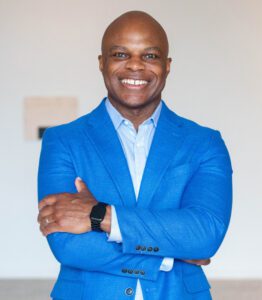
by Eric D. Harris —
After the 2023 TCAP scores were released, I spoke with two school leaders regarding their school’s performance.
Both revealed different levels of performance and had different interpretations of that performance.
Amazingly, both school leaders came to this conclusion: Children in our district are not the same as those in the suburban or rural school districts.
What does that mean?
Is the explanation rooted in culture, education, or a simple demographic explanation?
If true, should expectations of children’s success and well-being be relative to their cultural, educational, or demographic backgrounds?
My career began 24 years ago, when I took my first job teaching high school in Memphis. I’ve worked in several grade levels since to determine what hinders children’s success.
My journey has taken me through both public and private schools, locally controlled and state-controlled school districts, as well as daycare settings.
I have long sought the answer to the question: “Why do children who are impoverished and lack basic resources seem least likely to meet proficiency criteria?”
Some school leaders, as mentioned previously, believe that our children are different.
Experience and data tell me the poorest and most rural counties in Tennessee score just as low as Shelby County.
Poverty not only is about income, but also about the lack of access to healthy food and adequate housing that underserved people experience.
There is controversy surrounding the Tennessee General Assembly’s decision to place emphasis on third-grade success, especially in reading.
Third graders who are below reading level are 13 times more likely to not graduate high school, and 70 percent of incarcerated persons read below the fourth-grade level, according to research.
This shows that exceeding expectations by third grade is critical to students’ academic success.
Additionally, kindergarten language and literacy skills are predictive of third-grade success, but, as revealed by Vanderbilt University’s Peabody College Education, current efforts of increasing 4-year-old pre-k classrooms are not enough to support achievement.
By age 4, a child’s brain is 80 percent developed, making it very difficult to create the capacity needed to create a life-long learner.
Therefore, a pre-k only solution for 4 year olds is insufficient.
The answer is grounded in the combination of educational, economic, and health research.
A “Child Well-Being” study conducted by the Tennessee Commission on Children and Youth examined the categories of economic well-being, education, health, and family and community, and combined those scores into an overall ranking.
Shelby County ranked 93rd of 95 counties in the state.
Separate measures to increase our children’s well-being in Shelby County have not been successful.
Tennessee utilizes hundreds of millions of federal dollars to provide assistance yet almost half of those families report education, disablement, health, transportation, or childcare impediments.
In fall 2022, I began a nonprofit with a unique approach, based on my experience, research, and the best interest of families in our impoverished communities.
The JESSRAN Non-Profit Corp’s program Equity-2-Prosperity (E2P) provides both immediate and gradual treatments to give our families a platform for breaking cycles.
Our children will do better when their families do better, and vice versa.
In E2P, we follow the research and begin children’s educational journey at the age 2 in a pre-k modeled classroom.
Children learn letter sounds and not simple letter identification, actual counting, and not rote recital of numbers.
They develop through their relationships with classmates and teachers. At this age, they also learn to identify and cope with emotional triggers.
The E2P students all exceed developmental projections.
E2P works because we uniquely support families.
In addition to wrap-around services, including coping with Adverse Childhood Experiences, budgeting/financial literacy, adult-child interaction, mental/physical health, and child development, each family receives a monthly Guaranteed Income (GI) stipend.
An extra $500 per month gives our families breathing room and consistent income.
Although the GI comes with no restrictions on spending, our families use it mostly on things such as utility payments and children’s clothing.
We must be unique in our approach if we truly want to do better. Our county and state spend too much time arguing over methods that have only led to a decline in academic success and prevent us from providing what is needed to transform our community into a model of child development.
If, as a state, we become more open to examining results-based interventions, as a locale becomes more focused on equitable support for our communities, and as a family, put our children first, then cycles can begin to break.
(Eric D. Harris is the founder of JESSRAN Non-Profit Corporations Equity-2-Prosperity© (E2P) program.)



